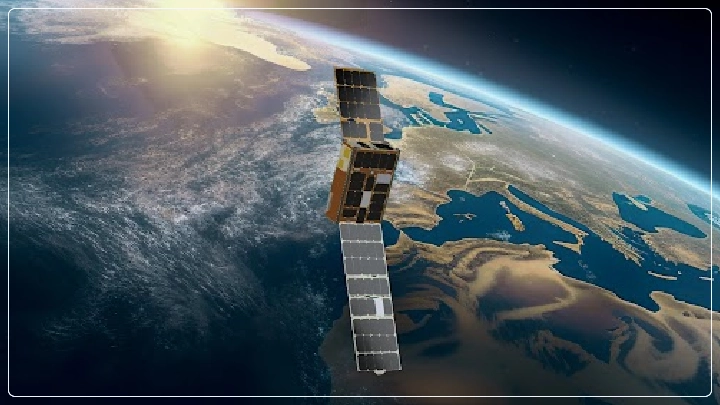Open Cosmos to Manufacture Europe’s First 6G Satellite Research Lab, 6GStarLab, for Advanced Space-Based Communications
A European research center, i2CAT, contracted Open Cosmos to design, build, integrate, launch, and operate 6GStarLab, the first low-Earth orbit satellite laboratory made for non-terrestrial networks and 6G communications research in Europe. The contract of €1.65 million will allow Open Cosmos to construct a satellite testbed for the study and validation of emerging communication technologies.

The satellite will be launched in October 2025 and research operations are expected to commence in early 2026. 6GStarLab will be a cutting-edge research facility in space equipped to create an open and flexible testbed for remote deployment and running of experimental communication technologies. Experiments will focus on the virtualization of satellite infrastructure, multi-frequency communication systems, and enhanced optical communications. 6GStarLab has the great potential to become a space-based research laboratory that will expedite NTN technology development, which is critical to enable global connectivity in remote and underserved regions.
A Collaborative Effort in Cutting-Edge Space Technology
The aim of the 6GStarLab project, which involves collaboration between i2CAT, Microwave Sensors and Electronics, Nanostatlab of the Polytechnic University of Catalonia, and Transcelestial, is to strengthen European research in AI, cybersecurity, and connectivity via 6G communications. The satellite will carry as payloads devices developed by i2CAT, Microwave Sensors, and Electronics, NanoSatLab, and Transcelestial. The project will generate significant datasets for the global scientific community and share outcomes with technologists and institutions involved in the further development of communications.
Backed by NextGenerationEU and Aligned with ESA’s 6G Roadmap
The Spanish Unico I+D 6G program subsidized by NextGenerationEU will allocate an investment of ten million euros for the establishment of various laboratories for research on next-generation communications technologies. The project cooperates with the European Space Agency 6G roadmap to position Europe as a global leader in satellite communications research. Open Cosmos CEO Rafel Jordà Siquer considers the project vital for placing Catalonia and Europe on the front lines of space communications. i2CAT Director Sergi Figuerola pointed toward the future-changing ability of 6GStarLab and described it as a landmark for European non-terrestrial network research, providing a real space-based infrastructure to validate key 6G technologies. The open lab will transform satellite communications research and its integration with terrestrial networks.
Transforming the Future of Connectivity with Space-Based NTNs
The 6GStarLab project is a first step toward the integration of next-generation communication systems with LEO satellite networks. The project will verify the implementation of next-generation technology for satellite communication collaboration among international researchers, universities, and industry leaders. The project hence creates an interaction between terrestrial and non-terrestrial networks, which would ultimately decide how the future of 6G communications will look across the globe. The inauguration of 6GStarLab therefore marks an important milepost in Europe's effort towards next-generation communication networks as it would provide further capacity for NTNs in inventing. This is a fundamental milestone toward integrating terrestrial-satellite networks and paving the way for developments in artificial intelligence and cybersecurity.